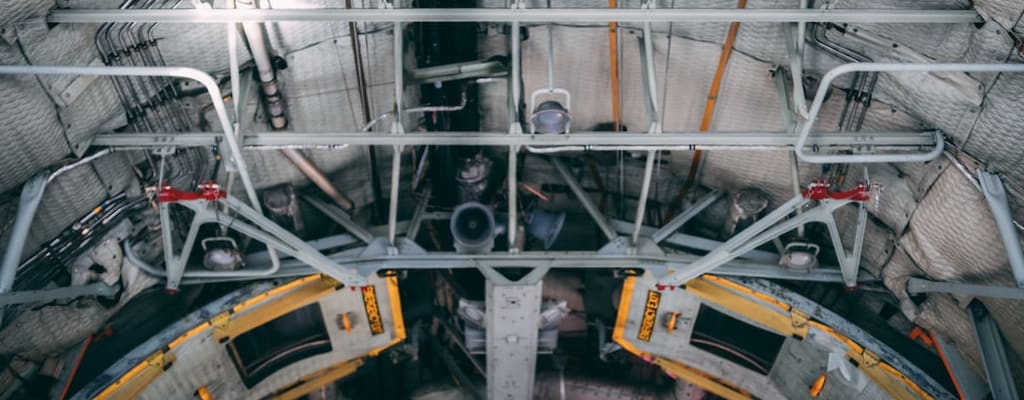happy landings: Idiom Meaning and Origin
What does ‘happy landings’ mean?
'Happy landings' is an idiomatic expression commonly used to wish someone a safe and successful journey or venture, particularly when they are about to embark on something uncertain or risky.

Idiom Explorer
The idiom "land on one's feet" means to recover or be successful after a difficult or challenging situation. It suggests being able to adapt and find a positive outcome despite the circumstances.
The idiom "land of opportunity" refers to a place or situation where there are many opportunities for success, especially in terms of economic and social advancement.
The idiom "keep one's fingers crossed" means to hope for good luck or success. It is often used when someone is wishing for a positive outcome or outcome of an event.
The idiom "hit the road" means to leave or start a journey. It suggests the action of physically hitting a road to begin a trip or adventure.
The idiom "hit the ground running" means to start a project or task quickly and energetically, without wasting any time. It indicates a proactive and effective approach to getting things done.
"Here we go" is an idiom used to convey the beginning of an event or situation, often with a sense of anticipation or resignation. It suggests that something is about to happen, and the speaker is ready to face it, whether it is a positive or negative experience.
The idiom "have a good time" means to enjoy oneself or to have an enjoyable experience.
The idiom "have a good one" is a casual way of saying "have a good day" or "have a good time." It is often used as a friendly farewell or a way to wish someone well.
The idiom "happily ever after" refers to a fairy-tale ending where everything turns out perfectly and all the characters live happily. It signifies an idealized and perfect ending to a story or situation.
Deciphering Take-offs
Happy landings is an idiom that is commonly used to wish someone a safe and successful journey, especially if it involves flying. It is a lighthearted expression that is often used ironically or humorously, as if to say, "I hope your journey goes smoothly and without any problems."
The origin of this idiom is unclear, but it is likely derived from the aviation industry, where it is used to wish pilots a safe and successful landing. This usage dates back to at least the mid-20th century, as it can be found in various aviation publications and military documents from that time.
Happy landings is not only used in aviation but also in show business or military operations. In these cases, it is used to wish performers or soldiers a successful outcome or a safe return. This suggests that the idiom has become more generalized over time, extending beyond its original aviation-related meaning.
While primarily spoken, happy landings can also be found in written texts, such as novels, newspapers, and online forums. Its popularity and familiarity make it a versatile expression that can be easily understood by native English speakers.
Although casual and light-hearted in nature, happy landings carries a deeper meaning. It conveys the hopes and well-wishes of the speaker, expressing a desire for the recipient's journey to be safe, successful, and filled with positive experiences. It acknowledges the uncertainties and challenges that come with embarking on a new adventure, while simultaneously offering encouragement and support.
Like many idioms, happy landings has a figurative meaning that extends beyond its literal interpretation. It serves as a metaphor for a successful and smooth transition or outcome, regardless of the specific circumstances. It can be used to express good wishes for any endeavor or undertaking, whether it involves travel, a career change, or simply navigating through life's challenges.
One related idiom that comes to mind when thinking about happy landings is "land on one's feet." This idiom means to be successful or fortunate in a situation, especially after a difficult period of time or a sudden change in circumstances. It is a way of expressing hope that the person will be able to navigate any challenges they may face and come out on top.
Another related idiom is "land of opportunity." This phrase refers to a place or situation where there are many chances for success and advancement. It is often used to describe a country or city that offers great possibilities for individuals to improve their lives. When someone wishes another person "happy landings" in the context of the "land of opportunity," they are expressing the hope that the person's journey leads them to a place where they can achieve their goals and find new opportunities.
Finally, the phrase "fare thee well" is another idiom that is related to happy landings. This old-fashioned expression is a way of saying goodbye and wishing someone well on their journey or in their future endeavors. It conveys a sense of fondness and sincerity, and is often used to bid someone farewell when they are embarking on a significant new chapter in their life. When used in connection with happy landings, the phrase adds an extra layer of warmth and goodwill to the well-wishes for a safe and successful journey.
Happy landings is a versatile and widely-used expression that conveys good wishes and support for someone embarking on a journey or endeavor. Its origin is rooted in the aviation industry, but it has since become more generalized and can be used in various contexts. The idiom carries a deeper meaning, symbolizing the hopes and well-wishes of the speaker, and serving as a metaphor for a successful outcome. Happy landings encompasses the complex emotions and uncertainties that come with any new adventure, while offering encouragement and optimism. It is a reminder of the interconnectedness of human experience, and the shared desire for a smooth and safe passage through life.
Example usage
- After a long and successful flight, the pilot announced "happy landings" to his passengers. - As a farewell message, the retiring flight attendant wrote in her colleagues' goodbye card, "Wishing you all happy landings in your future career." - The air traffic controller waved goodbye to the departing aircraft and said, "Wishing you a smooth and happy landing."
More "Aviation" idioms



